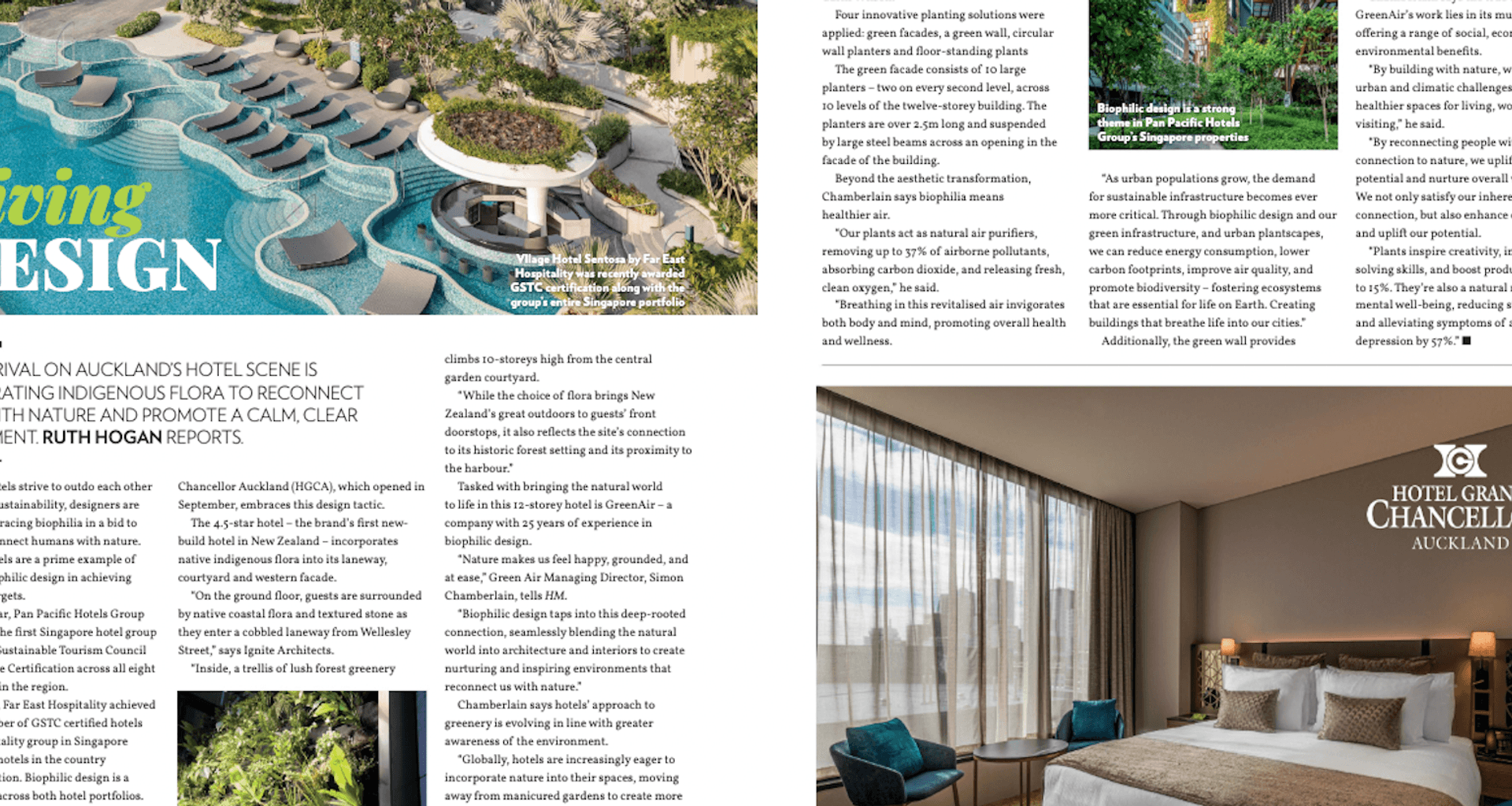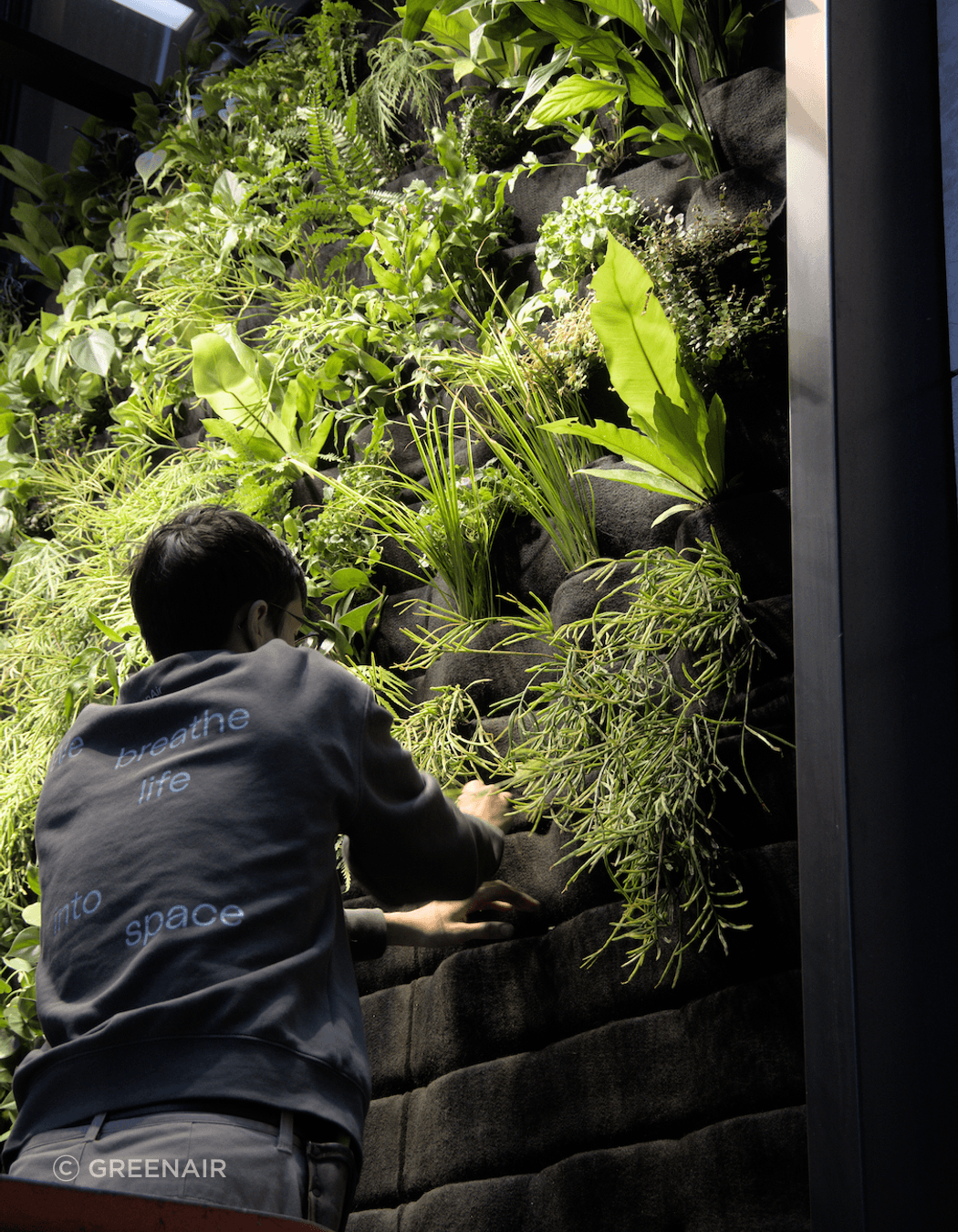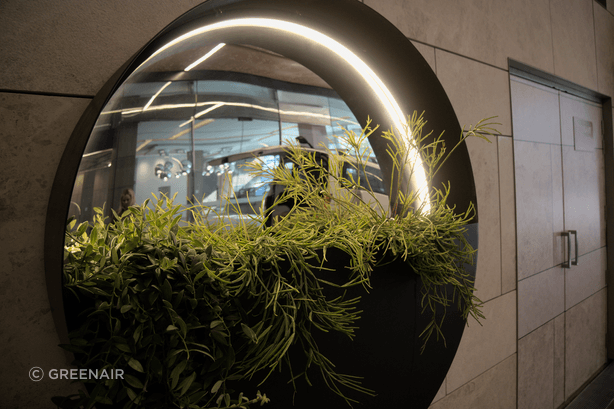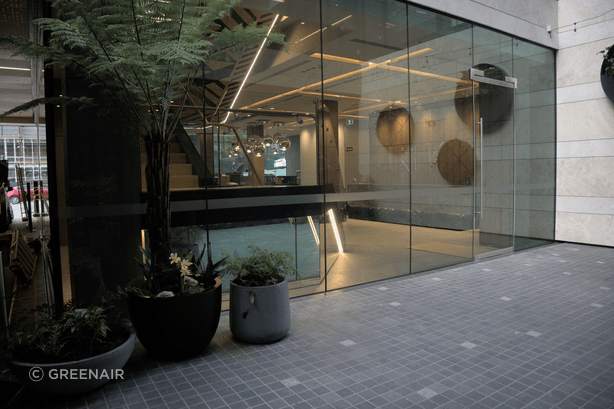How the Hotel Sector Can Leverage Biophilic Design to Enhance Sustainability, Cool Cities, and Elevate Guest Experiences

We’re in a magazine! While the excitement levels of hitting the press are pretty high, there is more to be excited about - the developing inclusion of greenery in the built landscape, especially in the hotel sector. The Hotel Grand Chancellor Auckland Auckland project is setting a new standard for how nature can be integrated into the hotel sector in New Zealand, and we are excited to be working with them at the forefront of driving this change.
In the HM Magazine article, we talk all things Biophilic design, hotels and how hotels can harness the power of biophilic design to boost their environmental impact while elevating the guest experience.
Incorporating Biophilic design into hotel new builds can have big sequential environmental impacts such as cooling our city, reducing energy consumption, lowering their carbon footprint, improving air quality and promoting biodiversity. Creating buildings that breathe life into our cities.
Incorporating Biophilic Design Hotels
Incorporating trees and plants in and around the buildings is the most obvious application of Biophilic design in the hotel landscape. Hotel Grand Chancellor Auckland is embracing this tactic by partnering with us to apply four innovative solutions: green facades, a green wall, circular wall planters, and floor-standing plants.
Globally, hotels are increasingly eager to incorporate nature into their spaces; moving away from manicured gardens to more natural, unclipped, and wild ecosystems. This holistic approach fosters habitats for birds, insects, bees, and butterflies, ensuring that buildings are in harmony with nature - a trend we see as the future of the industry.
Cooling Our Cities
As urban populations grow, the demand for sustainable infrastructure becomes more and more critical. We are passionate about ‘turning back’ to nature’s superpowers and weaving them into the fabric of our cities - creating smart, healthy living environments that are good for the planet and the soul.
Plants and greenery are crucial in cooling our cities by mitigating Urban Heat Islands and causing the process of evapotranspiration. A cooler city is a healthier city.
Urban Heat Islands are areas with high concentrations of buildings, roads and other infrastructures. They absorb and re-emit the sun’s heat, accounting for 39% of CO2 emissions. By incorporating nature within buildings, we are cooling the environment and reducing these emissions. Green walls alone can reduce the heat radiating from these buildings by up to 50%.
Plants also release water vapour through their leaves in a process called evapotranspiration, this natural phenomenon cools the surrounding area as the water vapour acts as a natural cooler.
As they cool, they also clean. Plants are natural air purifiers; capturing up to 30% airborne pollutants leaving the air we breathe cleaner and fresher. This has powerful health impacts on humans.
Other ways greenery boosts sustainable impacts:
- Enhances biodiversity
- Decreases greenhouse gases
- Improves water management
Elevating the guest experience through Biophilic design
Biophilic Design isn’t just about creating healthier environments that mitigate urban and climatic challenges, it also creates healthier places for people to live, work and visit.
Humans have an innate connection to nature, a concept known as Biophilia. Nature makes us feel happy, grounded, and at ease. Biophilic Design taps into this deep-rooted connection, seamlessly blending the natural world into architecture and interiors to create nurturing and inspiring environments that reconnect us with nature.
By surrounding guests with nature, we satisfy their inherent desire for nature allowing them to feel calmer, happier and grounded. Nature is used as a natural remedy for mental well-being, reducing stress by 37% and alleviating symptoms of anxiety and depression by 57%.
As nature leaves the guests generally happier, they are more likely to enjoy their overall experience, having raving reviews about their stay.

The true value of GreenAir’s Biophilic work lies in its multi-functionality, offering a range of social, economic, and environmental benefits. Hotels that build with nature address urban and climatic challenges while creating a healthy and happy space to visit. Allowing them to reap their benefits. We are excited to be working with hotels to drive this necessary change.


